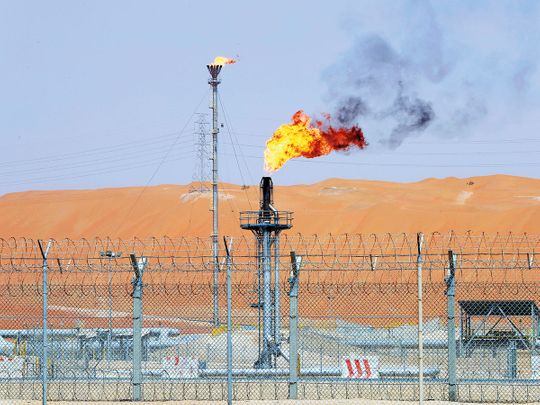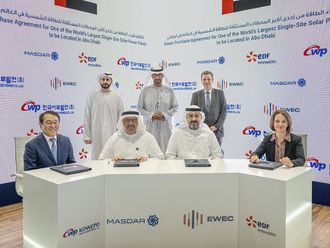
Saudi Aramco plans to retain exclusive rights to develop Saudi Arabia’s oil reserves even as the kingdom prepares a multi-billion dollar plan to open up to foreign investment.
“There is no intention whatsoever to chip away at Aramco’s exclusivity and its concession,” Saudi Energy Minister Khalid Al Falih told reporters on Saturday when asked whether the opening to international investors would extend to upstream oil and gas assets.
Opec’s biggest producer is preparing to sell shares in the state oil company in what could be the biggest initial public offering ever. To get ready for the IPO, Saudi Arabia granted Aramco a concession to pump most of the country’s crude, Al Falih said in Riyadh.
Saudi Arabia relies on oil sales for the bulk of its government income. Now it’s trying to develop new industries to diversify its economy and create jobs under a plan spearheaded by Crown Prince Mohammad Bin Salman. The kingdom is seeking some $425 billion (Dh1.5 trillion) in international investment over the next decade as it expands mining, chemical, electricity and logistics businesses, Al Falih said.
Aramco partners with oil multinationals such as Total SA and Exxon Mobil Corp in refining, while extracting all its hydrocarbons on its own. “Everything else remains as is for Saudi Aramco as we prepare for what we hope will be a speedy process to prepare for the IPO,” Al Falih said.
Saudi Arabia’s reserves total 268.5 billion barrels, more than the 266.3 billion figure the government published previously, according to an official audit of its deposits, the first since the energy industry was nationalised some 40 years ago.
Aramco’s concession has reserves of 263.1 billion barrels, according to audit, while the remainder lies in an area Saudi Arabia shares with Kuwait.
Saudi Arabia is leading the Organisation of Petroleum Exporting Countries in cutting production to bolster oil markets, which Al Falih said are “going through a soft patch.”
Demand is typically weak in the first quarter, meaning “oil markets will take time” to balance, he said.
Al Falih said he’s happy with the decision to cut output and that “Saudi Arabia is not only conforming — we’ve gone significantly above our targets in order to reassure markets and bring stability.”












